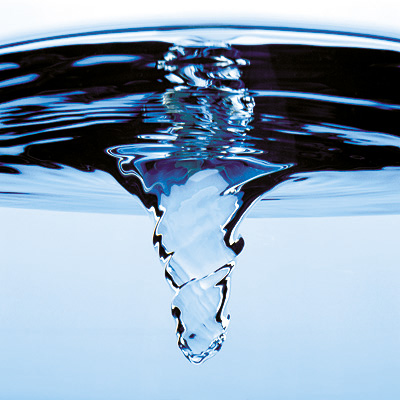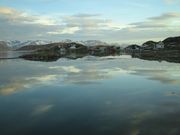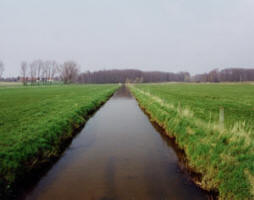- Regional water observation mechanism
- Regional Cooperation Assessment
- Water Quality Monitoring (JP)
- Water scarcity and drought (JP)
- Groundwater (JP)
- Waste water reuse (JP)
- Shared Water Resources Management (JP)
- Linking rural development and water management (JP)
- Waste management
- Water institutions
- Climate Change
- Floods
- Desalination
- Right to Water
- Irrigation
- Satellite data
- Water reports & data
- Hydrology
- Sanitation
- Gender and IWRM
- ArabWAYS
- Non-Revenue Water
- Virtual Water & Water Footprint
- WANA Water Panel
- Water Demand
- Water Governance
- Water Pricing
- Water accounts
- Water nexus Energy
- Geosciences
- Rural Management
 1st German-Arab Young Scientists Forum (1st GAYSF)
1st German-Arab Young Scientists Forum (1st GAYSF)
The first Forum
aimed at
reinforcing the German-Arab cooperation in Science and Research and creating a
platform for networking between the young researchers in both parts of the
world and in various disciplines. The Arab delegation included
participants from several Arabic countries such as
The participants were all young scientists and researchers working on different topics such as: Water, Biology, Environmental Sciences, Medicine, Political Sciences, Chemistry, Architecture, Arabic and German Literature, Islamic Art, Human Rights, Conflict and Pease Studies, etc. Thus, the Forum had an interdisciplinary character bringing together scholars from all major academic areas: Natural Sciences, Social Sciences, Arts and Humanities.
During the meeting, the German side represented by Prof. Dr. Klaus Lucas, the Vice-President of the Berlin-Brandenburg Academy of Sciences and Humanities, Dr. Verena Lepper, Dr. Kirill Dmitriev and Dr. Marc Helbling, members of Die Junge Akademie, and the Arab partners represented by Dr. Jauad El Kharraz, the General Secretary and Dr. Olfa Mahjoub, President of ArabWAYS, presented their visions of cooperation between German and Arab young researchers and highlighted the multi-disciplinary character of this forum.
Three topics were raised and discussed within the working groups of the Forum: (i) the Arab Spring and its impact on young Arab researchers, (ii) instruments and forms of cooperation between German and Arab institutions, and (iii) strengths and weaknesses of the research systems in Germany and Arab countries that have to be developed and/or reinforced.
Roundtables, group sessions and discussions took place in the presence of representatives of German institutions, outstanding and eminent experts, lecturers, who shared their experiences and views, and conveyed their expectations in the context of the German-Arab cooperation.
The Forum gave the young Arab researchers also the opportunity to visit some of the academic research institutions in the Berlin area, such as the Leibniz-Institute of Freshwater Ecology and Inland Fisheries (IGB), the Social Science Research Center Berlin (WZB) and the Berlin Museum of Natural History. During these visits further opportunities for cooperation were explored.
Moreover, representatives from the Alexander von Humboldt Foundation, the Center for international Cooperation at the Freie Universität Berlin, the German Academic Exchange Service (DAAD) and the Volkswagen Foundation presented their institutions, the cooperation programs as well as the potential areas in which they provide support for the activities of German and Arab young scholars. They expressed their will to contribute to improving the scientific cooperation between Germany and the Arab world, in particular with regard to the sponsorship of existing and new networking activities.
As a next step, a proposal emanated from the Arab side and welcomed by German participants, was an invitation to host the second German-Arab Young Scientists Forum in one of the Arab countries in 2012. In addition, drawing upon the relevance and importance of the German-Arab young researchers exchange, the Forum agreed to further elaborate on a joint proposal to be submitted soon to international donors. This initiative should aim at institutionalizing the cooperation between Die Junge Akademie and the ArabWAYS by means of creating a joint network of excellence. Pursuing new knowledge as a motor for innovation, such an international network could play a significant role in developing the scientific and cultural environment in both regions.
 |
 |
---------------------
The Junge Akademie was founded in the year 2000 as joint project of the Berlin-Brandenburg Academy of Sciences and Humanities (Berlin-Brandenburgische Akademie der Wissenschaften, BBAW) and the National Academy of Sciences Leopoldina (Nationale Akademie der Wissenschaften Leopoldina). Following its institutionalization in 2010, Die Junge Akademie continues to promote interdisciplinary discourse and co-operation between outstanding young scientists and scholars, and to support initiatives at the interface between science and society.
ArabWAYS:
is an initiative of the
---------------------
Contact:
Die Junge Akademie: Dr. Verena Lepper, Dr. Kirill Dmitriev, Dr. Marc Helbling
ArabWAYS: Dr. Jauad El Kharraz, Dr. Olfa Mahjoub
 you are not logged in
you are not logged in








